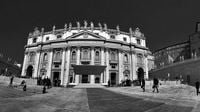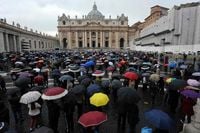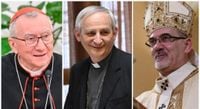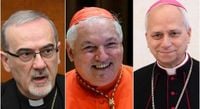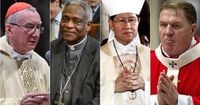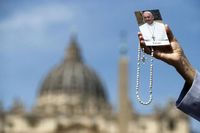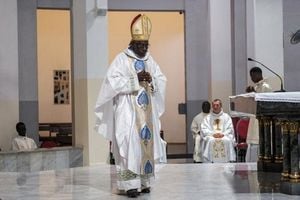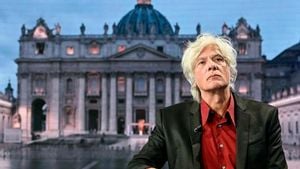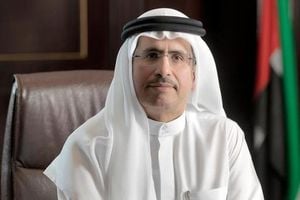In the wake of Pope Francis's passing, the Catholic Church faces a pivotal moment as it prepares for the Conclave to elect a new Pontiff. This process, steeped in tradition, involves a commission of cardinals who will consider various factors, including geographical representation and differing currents within the Church. Currently, there are 135 cardinals eligible to vote in the Conclave, with only one, Cardinal Carlos Osoro Sierra, facing the uncertainty of turning 80 years old on May 16, 2025.
The death of Pope Francis has left many wondering who will step into the role of the next Pope. According to collegeofcardinalsreport.com, around 22 candidates are being discussed, commonly referred to as 'papabili'. Among the most prominent names are Pietro Parolin, Matteo Zuppi, and Pierbattista Pizzaballa, who are all seen as potential successors closely aligned with Francis's vision.
Pietro Parolin, the 70-year-old Cardinal Secretary of State, is viewed as a leading candidate. He is known for his diplomatic skills and has been a significant figure in the Vatican since being appointed by Pope Francis in 2013. His role as a symbol of continuity in the Church makes him a strong contender for the papacy.
Matteo Zuppi, also 70 and the Archbishop of Bologna, has gained prominence for his peacekeeping efforts, particularly in the context of the ongoing conflict in Ukraine. His leadership within the Italian bishops' conference further solidifies his candidacy.
Another notable candidate is Pierbattista Pizzaballa, the 60-year-old Latin Patriarch of Jerusalem. Pizzaballa is respected for his mediation skills in a region fraught with conflict and is committed to interfaith dialogue, making him a unique choice for the papacy.
Additionally, Luis Antonio Gokim Tagle, the 67-year-old Prefect of the Dicastery for Evangelization from the Philippines, is considered a strong candidate due to his charisma and deep connection with the global Church. Known as the "Asian Francis," Tagle embodies a socially engaged Church, although he maintains conservative views on issues like abortion and homosexuality.
José Tolentino de Mendonça, the 60-year-old Prefect of the Dicastery for Culture and Evangelization from Portugal, is among the candidates as well. His theological perspective promotes dialogue across different faiths, which could appeal to a wide range of Church members.
Jean-Claude Hollerich, the 66-year-old Archbishop of Luxembourg, is recognized for his openness to reform and intellectual approach to Church matters. His involvement in the global synod highlights his commitment to addressing contemporary issues facing the Church.
While these figures are at the forefront, the list of potential candidates also includes Peter Erdo from Hungary, Jean-Marc Aveline from France, Willem J. Eijk from the Netherlands, and Fridolin Ambongo Besungu from the Democratic Republic of Congo, who is noted for his conservative stance. There is even speculation around Leonardo Ulrich Steiner from Brazil, representing the Latin American perspective.
In a surprising twist, the possibility of a Swiss Pope has emerged, with Kurt Koch and Emil Paul Tscherrig being the two Swiss cardinals in the College. Koch, at 75, has been involved in promoting Christian unity and remains a respected figure, though his chances of election are considered slim.
Church historian Alberto Melloni cautions against focusing solely on names before the Conclave, emphasizing the importance of understanding the agenda that the cardinals will prioritize in selecting the new Pope. He notes that the future of Catholicism in the West is a pressing concern, as attendance at Mass has dwindled and many children are not baptized.
As the Church grapples with these challenges, the upcoming Conclave is expected to convene between May 5 and May 10, 2025, following the traditional period of mourning for the deceased Pope. The electors, most of whom were appointed by Pope Francis himself, will need to navigate a complex landscape of diverse opinions and priorities.
In light of the significant void left by Pope Francis, who passed away from a stroke, the world awaits the outcome of the Conclave with bated breath. As the cardinals prepare to enter the Sistine Chapel, the question of who will fill this "grave void" looms large. The decision will not only shape the future of the Catholic Church but may also redefine its role in a rapidly changing world.
As the Church reflects on the legacy of Pope Francis, who was known for his progressive views and emphasis on social justice, the next Pope will face immense challenges. The new leader will need to address contemporary issues while also considering the diverse perspectives within the Church. The future of Catholicism in the West, where it has lost some of its appeal, will be a critical focus for the new pontiff.
In conclusion, the Conclave to elect the next Pope is set against a backdrop of uncertainty and anticipation. With numerous candidates in the mix, the cardinals will need to weigh their options carefully as they look to the future of the Church. The decision they make will resonate far beyond the Vatican, impacting millions of faithful around the globe.
